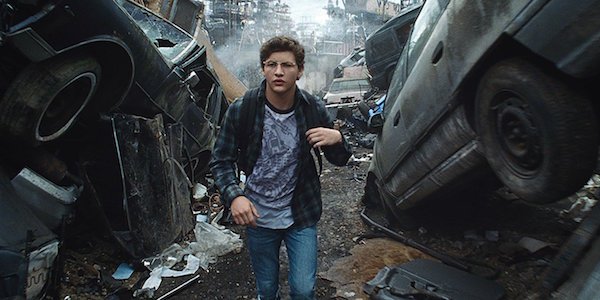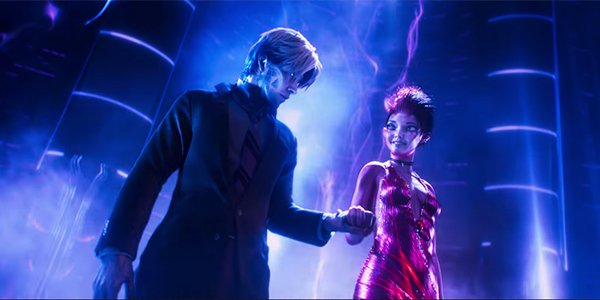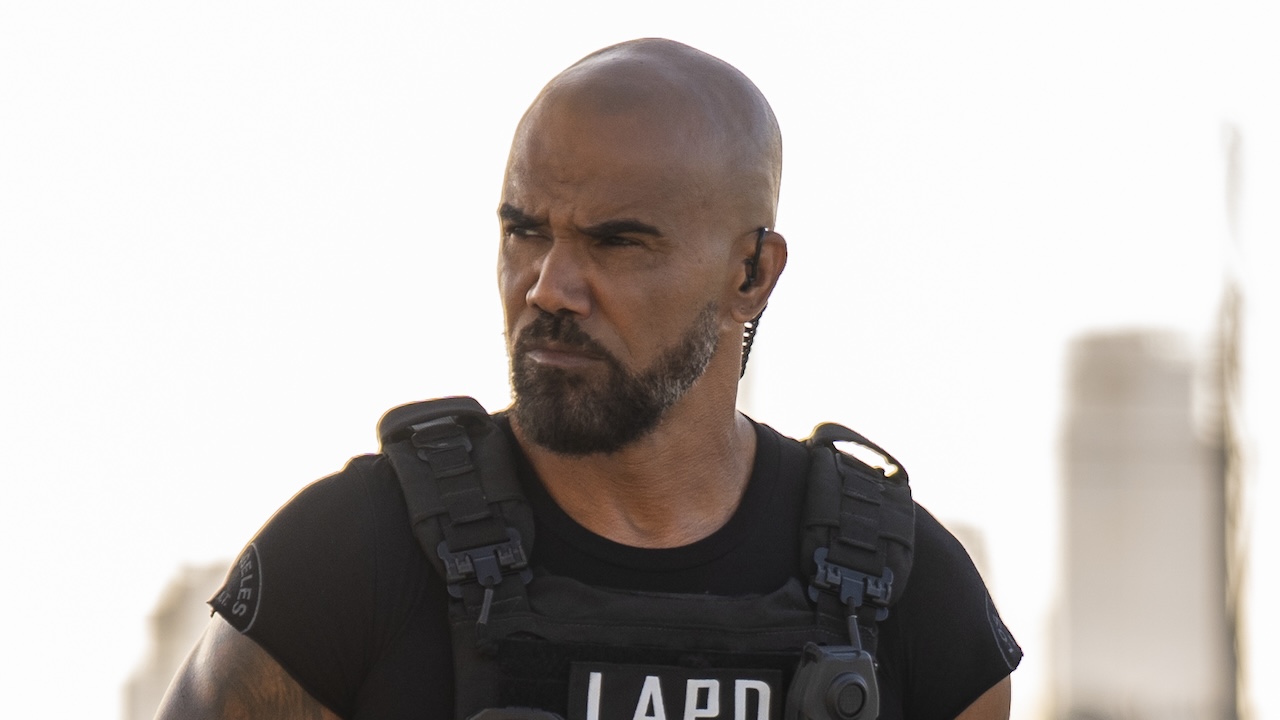In Defense Of Nostalgia And Ready Player One

Your Daily Blend of Entertainment News
You are now subscribed
Your newsletter sign-up was successful
WARNING: The following contains spoilers for Ready Player One. Don't read ahead until you've been to the OASIS.
Even before its release and now in the wake of it, Ready Player One has been subject to a swift backlash for the way the movie incorporates pop culture. Much like Ernest Cline's novel upon which it's based, Steven Spielberg's film explores the OASIS, a virtual world chock full of references to movies, TV and video games, especially those of the 1980's. The critique of Ready Player One seems to be that this movie is simply a hollow shell, meant to draw audiences in with the warm embrace of nostalgia for a game of spot the reference, at the expense of an original, meaningful story.
The criticism faced by Ready Player One is unsurprising in today's entertainment landscape. While the reboot and sequel craze has been going on for some time, there's a recent focus on reviving millennial properties of the 80's and 90's while also evoking the spirit and style of those eras. Tapping into fond childhood memories of a demographic with increasing buying power is seen as a cheap ploy and exponentially more overt when a film features a parade of references like Ready Player One does.
Yet many of these gripes were seemingly preordained because of the fanboyish novel. Thus, several opinions were fully formed before the movie's release. Watching the actual film, it is clear that while Ready Player One does have an appreciation for the pillars of pop culture, it is far more than just nostalgia bait (or memberberries if you prefer).
Having never read the novel, I was fully prepared for a cavalcade of references, an endless stream of callbacks and shout outs to pop culture icons that would be constantly calling attention to themselves, but I was pleasantly surprised when that wasn't the case. Sure there are dozens upon dozens of Easter eggs to find, but they never distracted me. I actually had to remind myself to try and spot the references when they weren't blatant. The references sort of faded into the background for me because of how Steven Spielberg got me invested in the protagonists and their quest.
Parzival may drive a DeLorean and wear a Thundercats belt and Art3mis may ride Kaneda's bike from Akira, but they are their own characters. Each expressing digitally how they see themselves and what they want the world to see, with a little bit of their interests sprinkled in. Others in the OASIS may have chosen Spawn or Ryu as avatars, but not Wade and Samantha. The characters we were asked to follow, they had to earn our fandom, it wasn't baked in.
Not everything was perfect, and sequences like Parzival trying on outfits was a bit of obvious pandering, but overall Spielberg doesn't allow the references to become too distracting or forced. Even the final battle on planet Doom, which was packed to the brim with Easter eggs, never overwhelmed. With the exception of a few killer geek out Easter eggs that served story purposes (It's a Gundam!), the references never took my focus away from my concern for Art3mis's safety or desire to see Parzival make it into the castle.
Your Daily Blend of Entertainment News
James Halliday's contest for the egg may have had the trappings of pop culture, but pop culture wasn't the point of it. Halliday was trying to teach a lesson about life and what he wanted for the OASIS. He had something to say about very real world things, like friendship and love, heartbreak and regret. He was a cautionary tale about wealth and power, as the OASIS did not bring him happiness and grew into something he never intended. Halliday created a contest for the ultimate fanboy, where only a person who truly understood him and his message could win. The gunters at IOI had all the pop culture knowledge, but they missed the human element at the heart of the contest. Wade won because he understood what Halliday wanted and how to avoid his mistakes, making him the right steward for the OASIS.

Mutual interests are what first sparked the relationship that blossomed between Parzival and Art3mis. Parzival's choice to wear a Buckaroo Banzai outfit in the hopes that Art3mis would get the reference was more than a way to sneak in another nostalgic reference, it showed his desire to make a real human connection in a digital realm. Pop culture is a connection point for people. If you bond with someone over your love of fine art or hiking or sports is that somehow more real, more valid than bonding over Back to the Future or Halo or Firefly? That is why I take umbrage with the nostalgia hate this movie has received. Lost in all of the talk of the problems with fanboy culture and looking at the past through rose-colored glasses are the reasons nostalgia makes us feel happy in the first place, and the ways it can be good.
What's so wrong with being taken back to your childhood? Nostalgia gives us a sense of belonging, of happiness and a shared history. Fandom can certainly go overboard but that's true of anything. There is actually research to suggest that nostalgia is good for you. Often the reasons things maintain a presence in pop culture and foster nostalgic memories is because they resonated in the first place, entertaining us, connecting us and inspiring us.
Nostalgia might make things fuzzy, but it is not blinding. I know I won't be able to contain my cringe if I watch the original Power Rangers series now. Despite my fond memories, it simply doesn't hold up. Whereas something like Hey Arnold! and The Adventures of Pete and Pete would still be brilliant as ever. Nostalgia only goes so far, as the diminishing returns of the Transformers movie franchise can attest to. Quality must be there, and that's why the nostalgia grab by Hollywood doesn't concern me. If Hollywood wasn't using nostalgia to get our attention and our money it would be using something else: spectacle, sex, tech, whatever.
Nostalgia is fine just so long as we are aware of it, enjoy it in moderation and it doesn't come at the expense of forward thinking. Ready Player One isn't perfect and it has problems, but nostalgia doesn't weigh it down or get in the way of the adventure if you don't let it. Besides, the heralding of nostalgia as some sort of virus infecting the culture is a simplistic view that misses all of the joy it brings to people. With all of the problems in the world, sometimes we all need to just feel like a kid again.
Nick grew up in Maryland has degrees in Film Studies and Communications. His life goal is to walk the earth, meet people and get into adventures. He’s also still looking for The Adventures of Pete and Pete season 3 on DVD if anyone has a lead.

